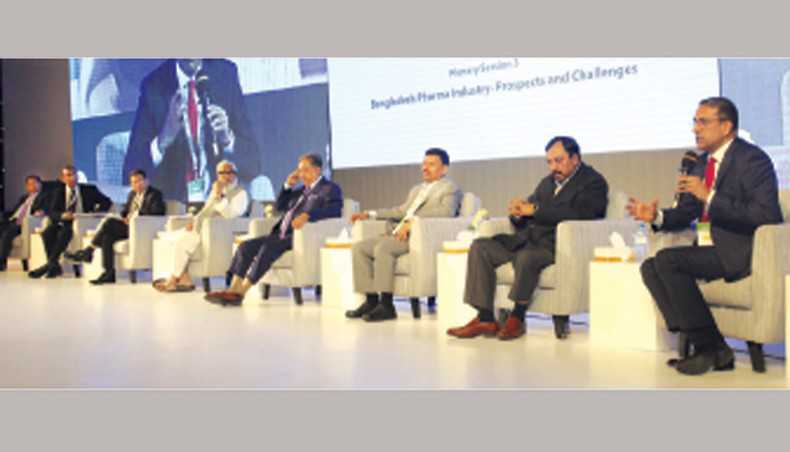More policy support needed for pharma sector growth

Experts on Saturday identified lack of skilled human resources, inadequate policy support and poor backward linkage industries as the key challenges for the growth of Bangladesh’s pharmaceuticals sector.
Bangladesh must have to engage in sturdy negotiations with the World Trade Organisation to avoid phase-out of Trade-Related Aspects of Intellectual Property Rights following its graduation from least developed country to middle income one in 2024, they said at the 4th Samson H Chowdhury Memorial Conference 2019 held at the Sonargaon Hotel in capital Dhaka.
Square Pharmaceuticals Ltd organised the event with three plenary sessions including Significance of Adverse Drug Reaction (ADR) reporting and current readiness of Bangladesh Pharma Industry, Opportunities for Collaboration between Industry and University/Research Centre for
Pharmaceutical Development and Bangladesh Pharma Industry-Prospects and Challenges.
‘Bangladesh pharmaceutical sector will have to face triangulation of three challenges: dual graduation, addressing the SDGs aspirations and the changing global scenario in view of end of TRIPS waiver,’ Centre for Policy Dialogue distinguished fellow Mustafizur Rahman said while presenting the keynote paper in the Bangladesh Pharma Industry-Prospects and Challenges session.
He said that phase-out of the TRIPS waiver for pharmaceuticals would increase the monopoly power of the originating drug producers in terms of setting the prices.
Mustafiz suggested calibrating policies to appropriately address the changing domestic and global scenarios.
He also suggested taking initiative in the areas of the ease of doing business, cost of capital, ease of trade facilitation and logistics and implementation of One-Stop Service Act 2018, which define the business and investment climate in Bangladesh.
Prime minister’s private industry and investment adviser Salman F Rahman said that the private sector would have to play a vital role in achieving the double digit growth in next five years and the government would ensure environment conducive for business in the country.
He emphasised changing mindset of both the government and the private sector as the private sector would have to hold a serious responsibility to go to the next level of development.
Regarding pharmaceutical industry, Salman, also vice-chairman of Beximco Group, said that the local pharma companies were meeting 97 per cent of domestic demand at the lowest prices in the world.
Tapan Chowdhury, managing director of Square Pharmaceuticals Ltd, said that there was a tremendous opportunity for the country’s pharma industry to grow as the government had created a favourable environment.
Nazmul Hassan, managing director of Beximco Pharmaceuticals Ltd, said that export market and domestic market of pharmaceuticals were completely different and the country’s manufacturers were producing generic medicines keeping in mind that they had to ensure essential medicines at affordable prices for the poor people of the country.
‘Our companies have ability to go for API production but it would increase the prices of medicines 10 times and people would be sufferers,’ he said.
Incepta Pharmaceuticals Ltd managing director Abdul Muktadir and Drug Administration director general Md Mustafizur Rahman also spoke at the programme, among others.
At the event, three scientists received the Samson H Chowdhury Award for their extraordinary contributions to the industry.
The scientists are Ronok Zahan, assistant professor at the pharmacy department of Rajshahi University, Md Hossain Shariare, associate professor at the pharmaceutical science department of North South University and Md Anwar Siddique, assistant professor at the microbiology department of University of Dhaka.
Source: http://www.newagebd.net